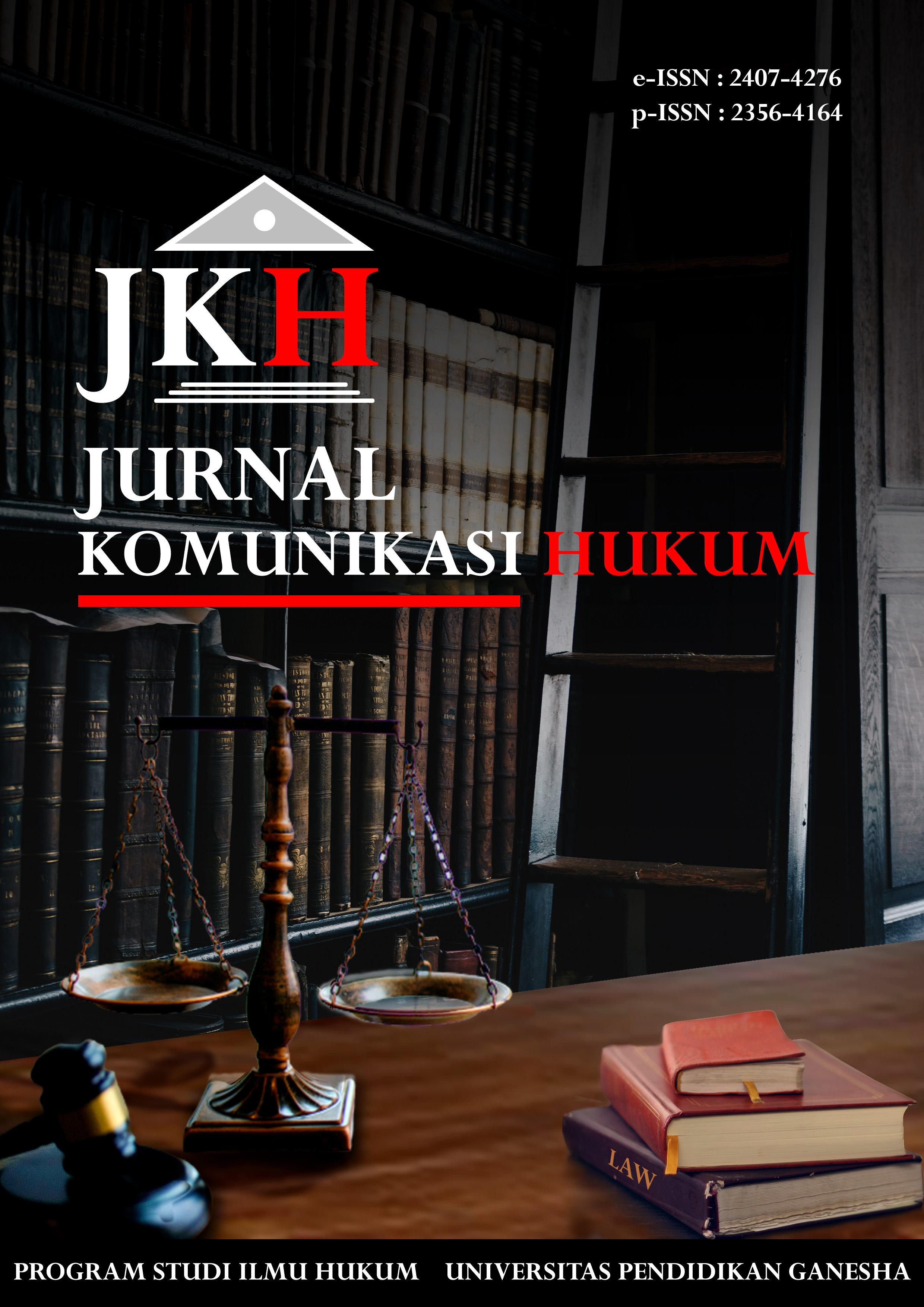Implementing Sustainable Finance Principles: Legal Implications of Ease of Doing Business Towards Banking Credit Approval
DOI:
https://doi.org/10.23887/jkh.v7i1.31456Keywords:
Sustainability Finance, Credit Approval, Environmental Impact AnalysisAbstract
The application of business licensing as a part of the ease of doing business has shifted the obligations present for business actors. One of the forms of said change is the absence of an obligation to conduct EIAs as a basic requirement to acquire a business license. This could boost investment in Indonesia. On the other hand, it also can prompt legal risks that are the revocation of business licenses towards actors that had failed to fulfill business license through OSS RBA. This provision impacts the application of the sustainable finance principle. Without the requirement of EIAs as the prerequisite of business licenses, banks gain the challenge of adjusting their approach towards the gaining of profits from long-term investments depends on a sustainable future on administering of credits by banks. The article aims to analyze the legal implications of changing regulation upon EIAs requirement on business licensing through Online Single Submission towards the application of the sustainable finance principle and the juridical consequences of the use of licenses based on commitments in the approval of bank credit. This research uses a normative juridical approach specifying in the descriptive analysis of primary and secondary law sources. The changed regulation upon EIAs requirement on business licensing through Online Single Submission has legal consequences for the bank to adjusting lending based on the debtor’s business activity stages and requiring EIA as the basis to provide credit on the applications of sustainable finance principle. Sustainable principle pushed out the alteration of banks' approach in the initiation of sustainable economic development with the gaining of profits from long-term investments dependant on future sustainable policy frameworks. The bank must take that approach is through policy frameworks that support sustainable economic development by crystallizing EIAs as a tool for credit decision.
Downloads
Published
How to Cite
Issue
Section
License
Authors who publish with this journal agree to the following terms:- Authors retain copyright and grant the journal right of first publication with the work simultaneously licensed under a Creative Commons Attribution License that allows others to share the work with an acknowledgement of the work's authorship and initial publication in this journal.
- Authors are able to enter into separate, additional contractual arrangements for the non-exclusive distribution of the journal's published version of the work (e.g., post it to an institutional repository or publish it in a book), with an acknowledgement of its initial publication in this journal.
- Authors are permitted and encouraged to post their work online (e.g., in institutional repositories or on their website) prior to and during the submission process, as it can lead to productive exchanges, as well as earlier and greater citation of published work (See The Effect of Open Access).
Authors who publish with this journal agree to the following terms:
- Authors retain copyright and grant the journal right of first publication, with the work [SPECIFY PERIOD OF TIME] after publication simultaneously licensed under aCreative Commons Attribution License that allows others to share the work with an acknowledgement of the work's authorship and initial publication in this journal.
- Authors are able to enter into separate, additional contractual arrangements for the non-exclusive distribution of the journal's published version of the work (e.g., post it to an institutional repository or publish it in a book), with an acknowledgement of its initial publication in this journal.
- Authors are permitted and encouraged to post their work online (e.g., in institutional repositories or on their website) prior to and during the submission process, as it can lead to productive exchanges, as well as earlier and greater citation of published work (See The Effect of Open Access).












